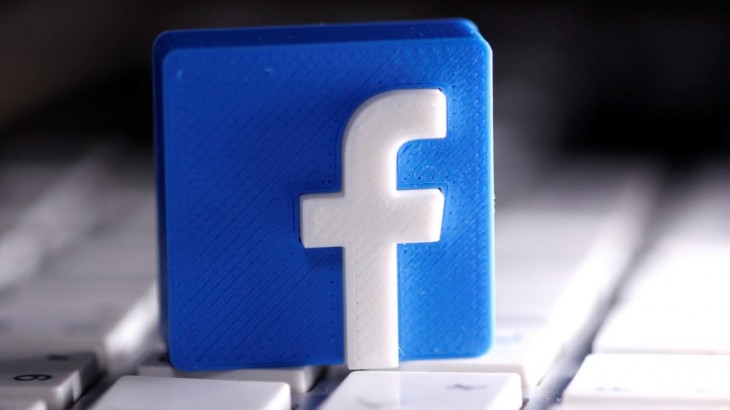In the run-up to the 2012 presidential elections in the United States, the Guardian newspaper published a story on how the Obama re-election communities. This style of micro-targeting was borrowed from the methods of marketing and advertising campaigns of successful consumer goods companies. This strategy was a phenomenal success. As the Guardian article said, if the 2008 Obama campaign was about pioneering the use of social media, the 2012 campaign was all about data.
The exponential rise of Facebook itself, which grew from 40 million to 160 million users in the US in those four years, was crucial to the success of the 2012 election. Of course, television was more important, but the use of Facebook data in electoral campaigns was fast catching up. That was eight years ago. Today, social media-based campaigns are on par, if not surging ahead, in terms of efficacy in comparison to television. Today, Facebook also owns WhatsApp and Instagram, making it the single largest repository of user data owned in the private sector.
After the 2016 elections, the role of Facebook came under increasing scrutiny. Was it biasing electoral outcomes? President Trump has accused it of creating prejudice, which the company has denied. Its co-founder Mark Zuckerberg has said that his company offers a platform to all people to voice their ideas. It does not censor free speech.
It is a platform for civic engagement between voters and candidates. It remains non-partisan. It claims to remain a politically agnostic tool. But Facebook faced severe criticism that it allowed Russian-funded advertisements, with fake information, to influence voters.
In fact, increasingly, its role in catering to politically well-funded campaigns has been in the spotlight. Does this information get transparently disclosed? Does the company take care of removing fake information or misinformation? Actually, as per Bloomberg reports, since 2011 Facebook has been asking the US Federal Election Commission to exempt it from disclosing revenue from political ads. This would put it in a more exclusive situation as compared to television and broadcast media.
In general, the company will push back any government request about user data, to maintain users’ privacy, unless it is legally warranted. But then, its close work with political party campaigns means its employees get close to what can be called electioneering. Facebook helps elected officials connect to citizens, through live streaming, participative interactions and, in that process, helps governance. But its proximity to governments, combined with its enormous reach, power and data make it a formidable force in electoral democracies.
Added to all this, the phenomenon of hate speech, organised harassment and trolling. There are enough instances when bigotry and hate speech have been spread through social media. There have been cases of lynching and violence which arose out of messages circulating on social media. It is a company like Facebook (which also owns WhatsApp) which decides what is trolling or harassment and what is protected free speech. It has to draw the thin line between hate speech and free speech. But the company is not the judiciary, nor is it subject to broadcast licensing. So, what if it tilts, even unwittingly, to one side? Aer all, the incumbent candidates and governments can be lucrative ad buyers, and could potentially influence Facebook’s internal policing decisions. It does employ sophisticated Artificial Intelligence tools to detect fake news or hate speech, but that still may not be good enough.
India has the world’s largest number of Facebook and WhatsApp, and possibly Instagram, users as well. In China, these are banned. The reach, influence and potential power of social media can only be imagined. Prime Minister Modi has the largest number of followers on a variety of social media platforms, including Facebook. He has leveraged the medium to a great extent, and established direct connections with citizens in a way which is a break from the olden days or radio or television. The implication for electoral politics is obvious.
A few years ago, the Chief Election Commissioner of India said that in earlier days, the EC had to worry about the influence of two “M”s. These were money and muscle power. But increasingly there is a third “M” which is “media”. By which he meant the menace of paid news, fake news, misinformation and disinformation. He was mostly referring to print and electronic media, which are all licensed businesses. The EC’s job is to ensure free and fair election without the undue influence of money, muscle and media power. But to this third M, we have to include social media. The recent revelation in a Wall Street Journal article on the role of Facebook in India’s electoral politics, and in being uneven in its treatment of curbing hate speech or trolling, to help a particular political party, raises many questions. How should we regulate this immense power?
Even in the domain outside electoral politics, the CEOs of the big four, i.e. Facebook, Google, Amazon and Apple were recently summoned to Washington to appear before a Congressional hearing. This was to grill them about their growing clout in stifling competition in the marketplace. There is a demand that some anti-trust, i.e. anti-monopoly, measures be introduced to curb their power.
Similarly, in the domain of elections, too, messaging, networking and microblogging social media platforms have to be regulated to curb misuse and also partisanship. This is a huge challenge for the Election Commission. Luckily, there is evidence that voters themselves, are becoming sceptical of fake news and paid news. Ultimately, an enlightened citizenry, or voters who invest time and effort in educating themselves, and don’t remain passive consumers of social media content, are the best protection and guarantee of a free and fair election.
The article was originally published on Deccan Herald.
Image Credit: Reuters
